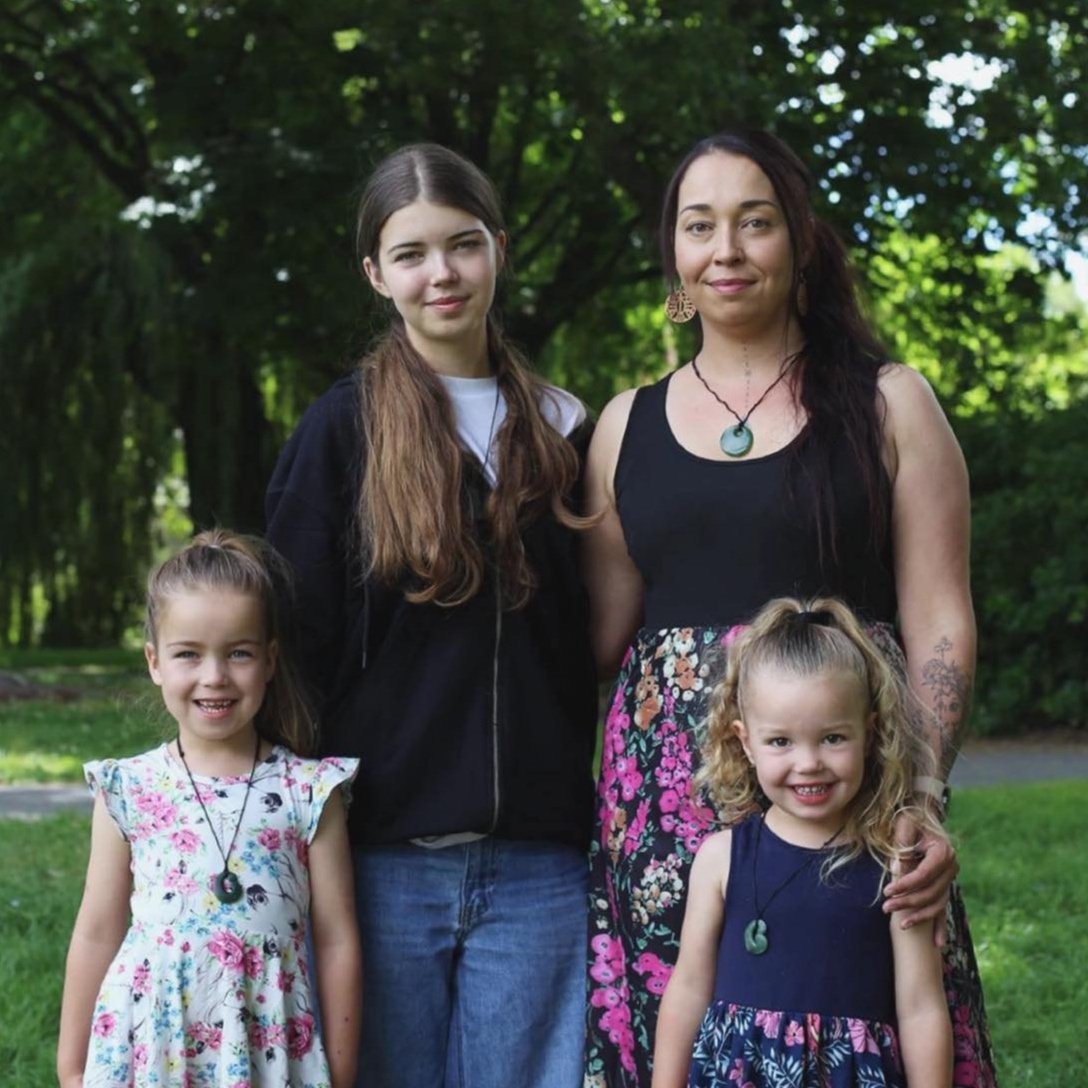Candice’s Story
Candice Cleave
(Kāi Tahu, Te Āti Awa)
Candice Cleave sat next to Jay Waretini-Beaumont on the first day of her midwifery degree and the pair have been inseparable ever since. Supporting each other through their studies, Candice and Jay were the only two tauira Māori to graduate from their cohort and their bond as midwives, māmā and friends has never wavered.
“For the first six months after graduating, we attended all of each other’s births so we could support each other, and I remember how weird it was the first time we flew solo and did a birth on our own. It was nerve-wracking, but it also showed us we could do it and we proved to ourselves that we had everything we needed.”
The pair worked in a midwifery partnership for two years, then became hapū at the same time and continued to fit midwifery mahi around the needs of their growing whānau. A few years later, Candice embarked on mahi as a staff midwife at Christchurch Women’s Hospital, allowing her to hone in on the aspects of midwifery she enjoyed the most. “When I gave up LMC practice and worked on the ward at the hospital, I was able to provide the kind of early postnatal support I wish I had received as a new māmā. My oldest daughter was born before I became a midwife and looking back, I realised how much more support I’d actually needed during that transition.”
Years of experience in both community and hospital settings helped Candice realise that although birth is a significant event for whānau, her true passion was in providing care and education either side of the hugely anticipated birth.
“Birth is exciting and amazing, but what really motivates me is seeing whānau thrive in the longer term, so being there for those first six weeks following birth to see that evolution is key for me, and I believe education in the antenatal period is what sets whānau up well for that. I love births, but it’s just a very small portion of the whole journey; I want to have a longer lasting impact.”
Believing whānau have an inherent right to be well and wanting to do something about the inequitable outcomes she was seeing, Candice was ultimately guided out of clinical midwifery and into a leadership role at Te Puawaitanga ki Ōtautahi Trust. Starting out as a vaccination clinic co-ordinator in 2021, Candice is now Oranga Team Leader, supporting kaimahi working across a variety of whānau/oranga-based contracts.
“My team are working across a broad range of services including: rongoā; SUDI prevention and support; navigating parenting within the corrections system; the Canterbury breastfeeding advocacy service; Ūkaipo – which is a parenting and connection group; wahakura distribution and wānanga; Whānau Mai hapūtanga wānanga; smoking cessation support; kaupapa Māori peer breastfeeding counselling programmes; connection to mātauranga Māori through raranga; and a tāne engagement programme to try and connect with our pāpā. Basically, a huge range of services aimed at helping whānau thrive in the first 2,000 days.”
As a facilitator of Whānau Mai - the trust’s own te ao Māori antenatal education programme - Candice provides an opportunity for whānau to engage in education that is culturally affirming and relevant to their worldview.
“The highlight for me is I feel like the things we do in our team make a real, tangible difference for whānau. One of these is supporting whānau to connect to their culture. I completed a tūpuna parenting programme and now incorporate those principles into our own programmes. It’s about finding ways of bringing pre-colonial concepts and ways of life into the present.”
As a Ngā Māia member and treasurer of local rōpu Māori Midwives ki Tahu, Candice remains deeply connected to midwifery, and wholeheartedly stands by her decision to move into her current mahi. “Being in a leadership position now, I have more of a voice in spaces that matter and I can make more of a difference here than any other role I’ve been in. I can also support midwifery tauira through Jay – for example we’ve created a class for all first year tauira to come and get their antenatal education requirements ticked off, and we invite them to things like wahakura wānanga so they can learn how to make those. This role is so relational; it’s all about connections and whānau.”
Candice’s determination to see te iwi Māori reach their highest potential continues to drive her every day. “I don’t want to see whānau over-represented in statistics anymore. I truly believe we can have the same outcomes as non-Māori, and I now work in a role where I can actually help that become a reality for our whānau here in Ōtautahi, so I’ll be here for as long as I feel I can still make a meaningful contribution.”


